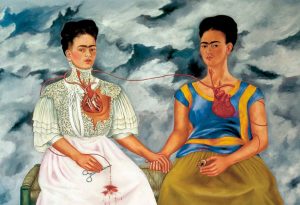This article, originally titled In Vegas, Calderon bets on tourism, has been re-posted from Travel Weekly and was written by Arnie Weissmann
In April the World Travel and Tourism Council Global Summit was held in Las Vegas and during the event, Travel Weekly sat down with Mexico’s President, Felipe Calderón, to talk about the current state of tourism and safety in Mexico. Below is the interview:
Travel Weekly: Safety and security concerns have kept some American visitors from Mexico, and the U.S. State Department recently expanded its warnings. Do you believe that the updated warnings accurately reflect areas that might be dangerous to travelers?
President Felipe Calderon: In some cases they are out of proportion and don’t accurately reflect the situation. It’s as if there was an incident in Tucson and a warning was issued for the entire state of Arizona. I understand that, yes, we have a problem. And we are dealing with it — with the support of the American authorities, by the way — and we are moving ahead. And I understand the objective and the obligation of the American authorities to protect their own citizens. But we need to find a way to inform your people without affecting destinations [that aren’t dangerous].
TW: Travel Weekly recently put together a map that shows exactly where State Department warnings apply. Are there specific places where the State Department indicated there are problems but where you think there is no problem?
Calderon: Travel Weekly did a great job in doing so, because you need to put the problem in perspective. If you can see the geography of Mexico, it’s a huge country! And even inside a very problematic city, not all the parts of the city are problematic.
And, importantly, violence and organized crime are not affecting international visitors. Seriously, we had 23 million international tourists last year, plus 6 million visiting from cruise ships, and you can count with your fingers the number of incidents with international visitors regarding violence or organized crime.
But of course, I understand that the problem we have is of perception. The state of Quintana Roo [where Cancun, Cozumel and Riviera Maya are located] on the Caribbean Sea and [neighboring state] Yucatan have two homicides per 100,000 people. That’s much less than Jamaica or Barbados or Aruba or even Puerto Rico, which has 20. So please, put that in perspective.
TW: Do countries other than the U.S. have security alerts for Mexico, and if so, are they accurate? And are they affecting travel to Mexico by their citizens?
Calderon: Spain has one. But Spanish tourists are still coming. Tourism from Spain grew 33% last year. In Texas, authorities issued a warning about going to Mexico for spring break, and we had more spring-breakers coming from Texas.
TW: Were there any incidents involving college students and drug cartel violence during spring break?
Calderon: Absolutely not. Not one. Not for any U.S. citizen.
TW: In January, you declared 2011 to be the Year of Tourism for Mexico, and your presence here in Las Vegas at WTTC is certainly an indication you’re personally involved. But as a result, do you face criticism within Mexico from people who feel there are more important things you could be doing? If so, how do you respond?
Calderon: It was a very tough decision to decide to come here. You can imagine the cartoons related to the president of Mexico in Las Vegas. A lot of politicians either don’t understand the importance of tourism, or perhaps they understand but enjoy attacking the president.
But I don’t care about that. Tourism is a priority for the Mexican government, and we need to explain how important tourism is. I was absolutely sure that I needed to be here to talk to some of the most important people in tourism about the real situation in Mexico and the amazing opportunities we have.
 TW: Yet, two years ago you were ready to remove tourism from its cabinet-level status. What changed your mind about tourism?
TW: Yet, two years ago you were ready to remove tourism from its cabinet-level status. What changed your mind about tourism?
Calderon: Two years ago was a very difficult time for Mexico and for the world. Our economy went down by 10% in the first and second quarter of 2009 due to the economic crisis in the U.S. We suffered reductions in oil production. So we needed to make drastic adjustments on both income and expenditures.
I was not proposing we eliminate government support of tourism, but to put it under the Secretary of the Economy. In the discussion with Congress that followed, I decided to preserve the Secretary [of Tourism] and reinforce its resources and capability. We are absolutely committed to tourism, with my strong support.
TW: With all the difficulties facing Mexico tourism, airfares to Mexico from the U.S. are nonetheless relatively high. Will there be more seats added into Mexico soon?
Calderon: I asked a person recently to tell me two things Mexico could do to improve tourism. And he said, “Visas and planes.” We are increasing our visitors year after year, but the connections by plane are complex. I’d like to improve the situation, to increase competition and the number of flights. The prices are high because demand is high, and that means more opportunities. I know a lot of companies, not only Mexican companies but foreign companies, that are trying to bring more seats to Mexico. We need more competition.
TW: You have, at this point, a little more than a year left in office. What progress regarding tourism would you like to see occur between now and the end of your term?
Calderon: First, to change the perception about Mexico, and we are working hard on that. Second, I want to move forward to resolve any regulatory obstacles for tourism as regards visas or preclearance or things like that. Third, I’d like to see more competition among airlines that bring visitors to Mexico. Fourth, we have a lot of infrastructure projects that I hope to finish. Fifth, we need better campaigns of promotion for Mexico. Sixth, we need to train people better, our young students, through more schools of tourism.
The last year-and-a-half I have left in office is, for me, like the last quarter in American football. It’s the most important quarter, and most important of all is the final two minutes.
I’m going to play the best of my government in this year-and-a-half, for tourism and for anything.
Email Arnie Weissmann at [email protected] and follow him on Twitter.




